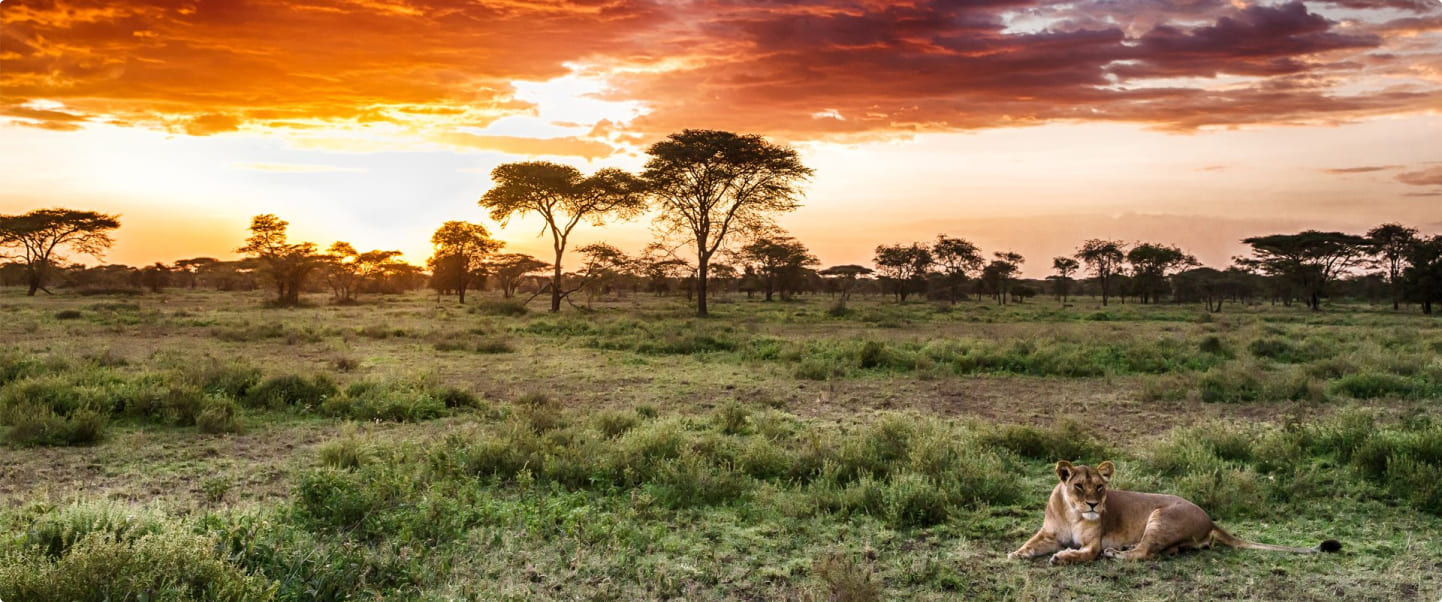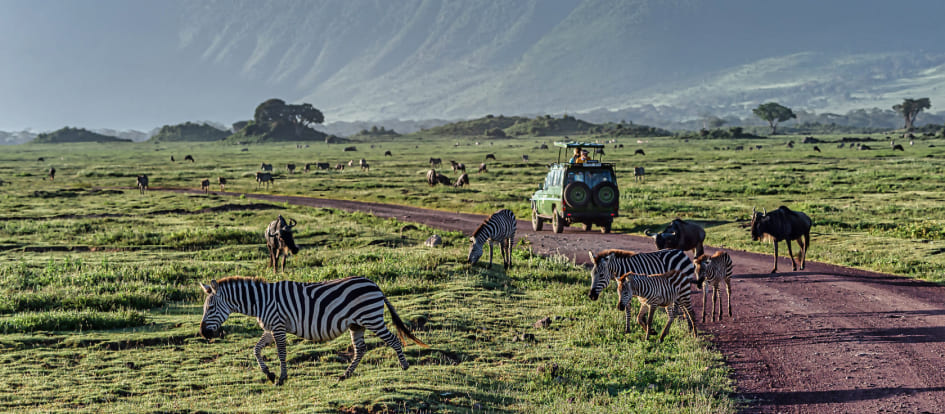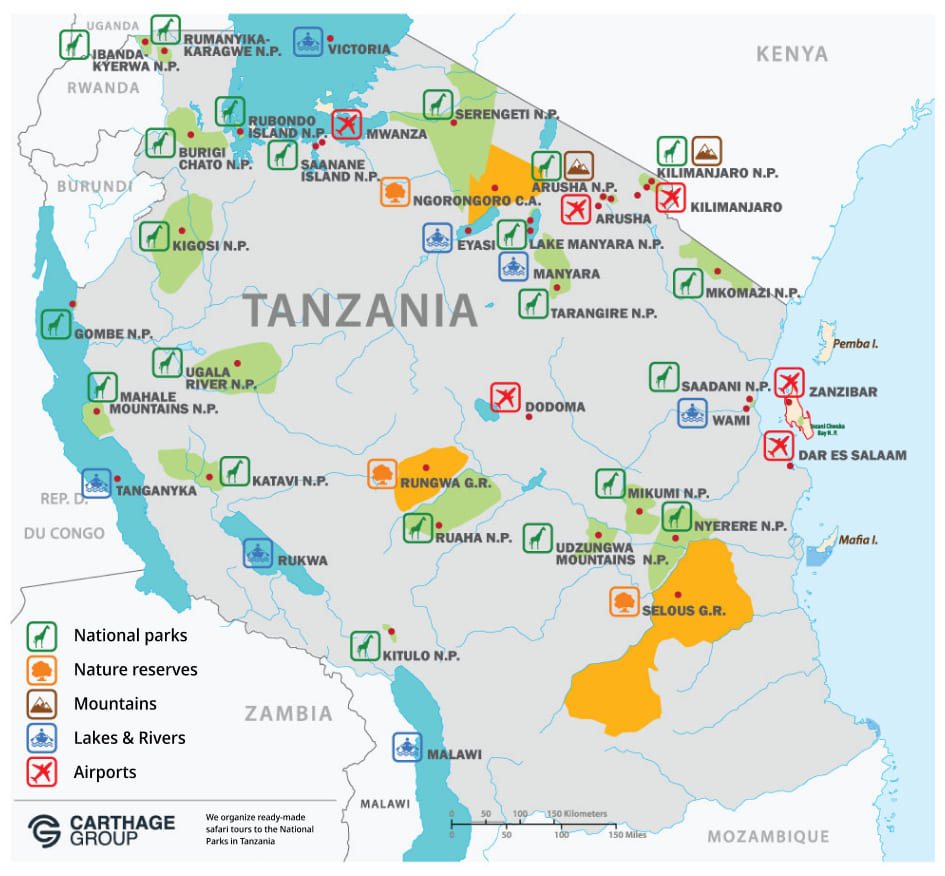


Sixty years ago, the first President of the United Republic of Tanzania Mwalimu Julius K. Nyerere officially recognized the special status of wildlife in the country.
In September 1961, at the Symposium on Conservation of Nature and Natural Resources in Modern African States, he gave a speech, which laid a foundation for natural resources conservation in post-independent Tanzania. The speech is widely known as the Arusha Manifesto.
«The survival of our wildlife is a matter of grave concern to all of us in Africa. These wild creatures amid the wild places they inhabit are not only important as a source of wonder and inspiration but are an integral part of our natural resources and our future livelihood and wellbeing.
The conservation of wildlife and wild places calls for specialist knowledge, trained manpower, and money and we look to other nations to cooperate with us in this important task — the success or failure of which not only affects the continent of Africa but the rest of the world as well.»

The organization now knows as Tanzania National Parks (TANAPA) was established and Serengeti became the first National Park.
Nowadays conservation in Tanzania is governed by the Wildlife Conservation Act of 1974, which allows the Government to establish protected areas and outlines how they are organized and managed. National Parks represent the highest level of resource protection that can be provided.
To Tanzanians’ credit, their consistent efforts were rewarded, and by September 2019, TANAPA has grown to 22 National Parks, covering an area of over 99,000 sq km in total as per table below:
| № | National Park | Area | Established | Characteristics |
| 1 | Serengeti | 14763 km2 | 1951 | The site of what most consider the most dramatic mammal migration on earth |
| 2 | Lake Manyara | 6487 km2 | 1960 – 2009 | The place of tree climbing lions |
| 3 | Arusha | 552 km2 | 1960 – 2005 | Amazing walking safaris |
| 4 | Ruaha | 20300 km2 | 1964 – 2008 | One of the few Tanzania’s famous wilderness areas |
| 5 | Mikumi | 3230 km2 | 1964 | The exciting world of wildlife |
| 6 | Gombe | 71 km2 | 1968 – 2013 | A fragile strip of chimpanzee habitat |
| 7 | Tarangire | 2600 km2 | 1970 | Elephants’ paradise |
| 8 | Kilimanjaro | 1668 km2 | 1974 – 2005 | The Roof of Adrica |
| 9 | Katavi | 4471 km2 | 1974 | An untouched wilderness paradise |
| 10 | Rubondo Island | 457 km2 | 1977 | A gem of blue waters |
| 11 | Mahale Mountains | 1577 km2 | 1985 | A spectacularly beautiful chimpanzee sanctuary |
| 12 | Udzungwa Mountains | 1990 km2 | 1992 | A unique ecosystem with breathtaking scenery |
| 13 | Saadani | 1100 km2 | 2005 | A place where the ocean meets the bushes |
| 14 | Kitulo | 413 km2 | 2005 | “The Garden of God” |
| 15 | Mkomazi | 3245 km2 | 2008 | Home to endangered species |
| 16 | Saanane Island | 2.8 km2 | 2013 | Magical island |
| 17 | Burigi Chato | 4707 km2 | 2019 | The land of wondrous waters |
| 18 | Ibanda-Kyerwa | 298.6 km2 | 2019 | A place where the boarders of three countries meet |
| 19 | Rumanyika — Karagwe | 247 km2 | 2019 | Breathtaking views |
| 20 | Nyerere | 30893 km2 | 2019 | “The Land of the Mighty Rufiji” |
| 21 | Kigosi | 7460 km2 | 2019 | The largest wetlands complex in East Africa |
| 22 | Ugalla river | 3865 km2 | 2019 | One of Tanzania’s newest parks |
